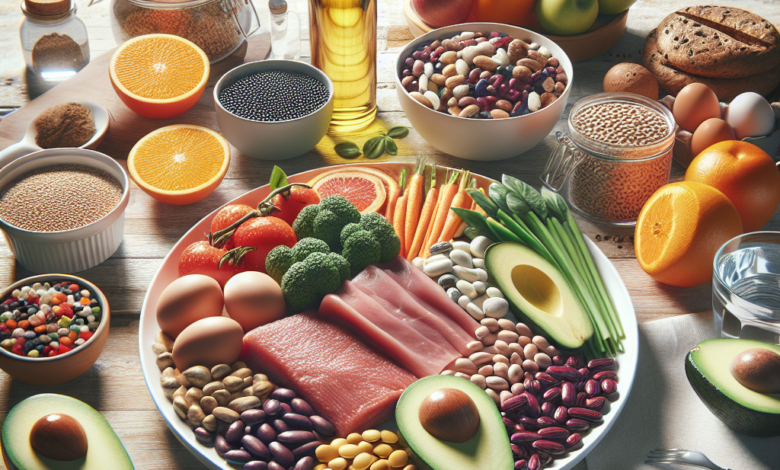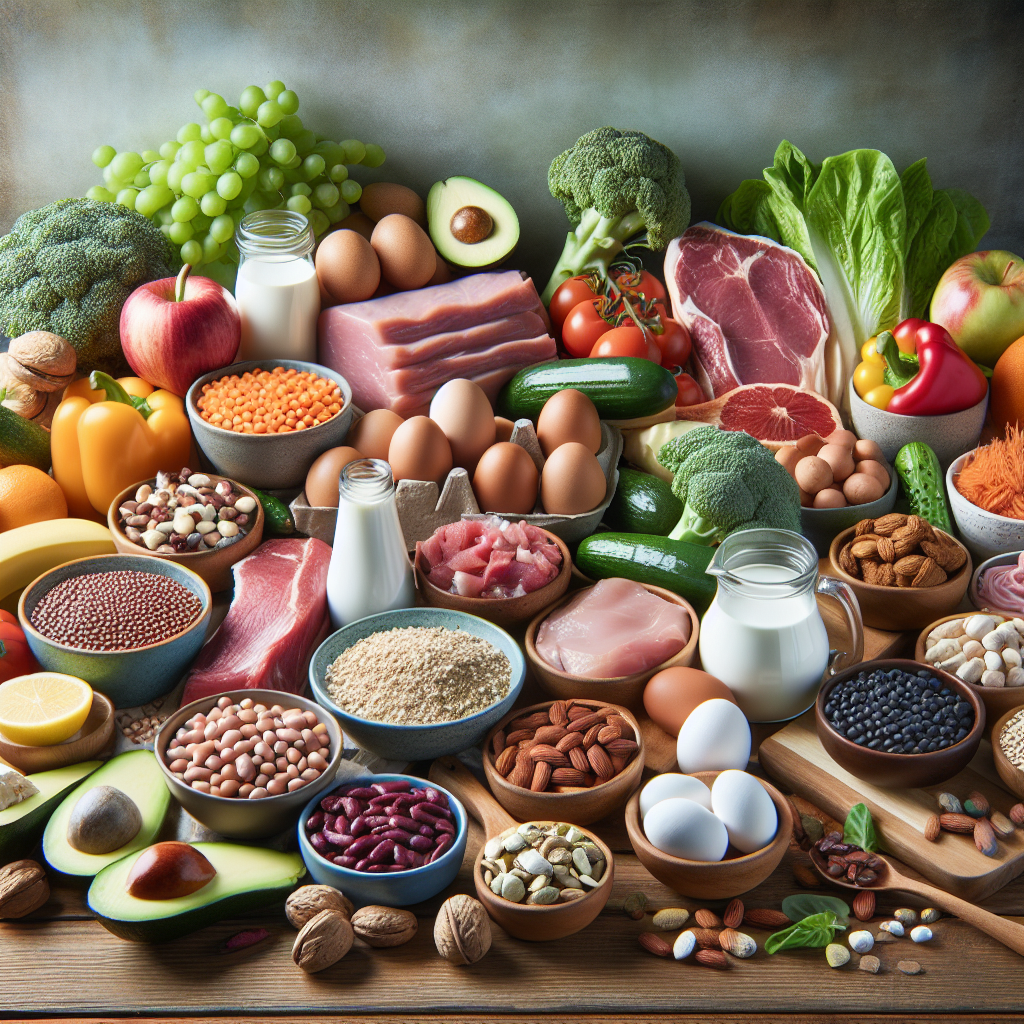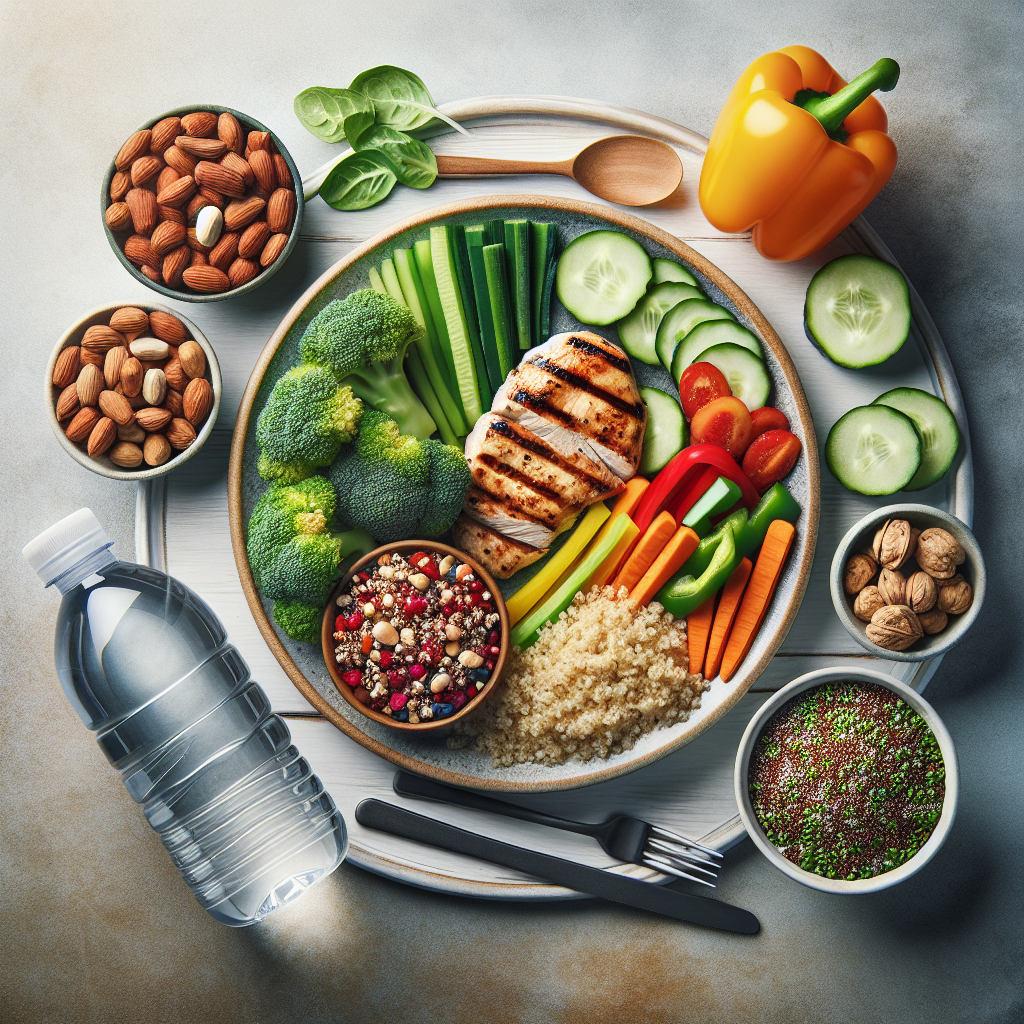Top Fitness Nutrition Tips for a Healthier You!

Embarking on a fitness journey is not just about hitting the gym; it’s equally about fueling your body with the right nutrients. The synergy between exercise and nutrition is crucial for achieving optimal health and fitness results. Understanding the basics of fitness nutrition can significantly enhance your workout performance, boost your energy levels, and aid in faster recovery.
The core principle of fitness nutrition revolves around consuming a balanced diet that provides adequate macronutrients—proteins, carbohydrates, and fats—as well as micronutrients like vitamins and minerals. Whether you’re aiming to build muscle, lose weight, or improve endurance, what you eat can make or break your progress.
Protein is essential for muscle repair and growth. It’s important to include high-quality protein sources such as lean meats, eggs, dairy, and plant-based options like beans and lentils in your diet. Carbohydrates are the primary source of energy for your workouts. Opt for complex carbs like whole grains, fruits, and vegetables to keep your energy levels stable throughout the day. Healthy fats, found in foods like avocados, nuts, and olive oil, are crucial for hormone production and overall cell function.
Beyond macronutrients, staying hydrated and consuming a variety of vitamins and minerals is vital. Hydration aids in maintaining blood volume, regulating body temperature, and ensuring proper muscle function. Meanwhile, vitamins and minerals support various bodily functions, from bone health to immune response.
Ready to dive deeper into the world of fitness nutrition? Explore More at Muscle Theory and uncover expert tips, meal plans, and much more to help you achieve your fitness goals!
Importance of Balanced Diet

A balanced diet is the cornerstone of any successful fitness regimen. It ensures that your body gets the essential nutrients it needs to function optimally. But what exactly constitutes a balanced diet? At its core, it’s about consuming a variety of foods in the right proportions to maintain health, energy, and overall well-being.
One of the key benefits of a balanced diet is that it supports your body’s energy needs. Carbohydrates, for instance, are the primary fuel source for your muscles during exercise. Including a mix of complex carbs such as whole grains, fruits, and vegetables provides sustained energy and helps prevent the fatigue that can derail your workouts.
Proteins play a vital role in muscle repair and growth. Including high-quality protein sources like lean meats, fish, eggs, and plant-based proteins ensures that your muscles recover efficiently after strenuous exercise. This not only helps in muscle building but also reduces the risk of injuries.
Fats, often misunderstood, are equally important. Healthy fats, found in avocados, nuts, seeds, and olive oil, are crucial for hormone production and the absorption of fat-soluble vitamins. These fats also provide a concentrated source of energy and support overall cellular health.
Micronutrients, though required in smaller amounts, are indispensable. Vitamins such as A, C, and E have antioxidant properties that combat exercise-induced oxidative stress. Minerals like calcium and magnesium are essential for bone health and muscle function.
Incorporating a balanced diet not only optimizes your physical performance but also enhances mental clarity and emotional stability. By paying attention to what you eat, you can ensure that your body and mind are in peak condition, ready to tackle any fitness challenge.
Pre-Workout Nutrition Tips

Proper pre-workout nutrition can make a significant difference in your exercise performance and recovery. What you consume before hitting the gym can provide the energy and stamina needed for an effective workout session. Here are some essential pre-workout nutrition tips to help you get the most out of your fitness routine:
1. Timing is Crucial: Aim to eat a balanced meal containing carbohydrates, proteins, and fats about 2-3 hours before your workout. This allows your body enough time to digest the food and convert it into usable energy.
2. Focus on Carbs: Carbohydrates are your body’s primary energy source during exercise. Consuming complex carbs like oatmeal, whole grain bread, or brown rice can provide a steady release of energy throughout your workout.
3. Include Protein: Protein helps in muscle repair and growth. Opt for lean protein sources such as chicken, turkey, fish, or plant-based options like tofu and legumes. A pre-workout protein shake can also be a convenient choice.
4. Don’t Forget Healthy Fats: While fats take longer to digest, incorporating small amounts of healthy fats such as avocado or a handful of nuts can provide sustained energy without weighing you down.
5. Hydration is Key: Dehydration can significantly impact your performance. Ensure you drink plenty of water in the hours leading up to your workout. Consider consuming an electrolyte drink if you’re planning a particularly intense session.
6. Avoid Heavy Meals: Eating a heavy meal right before your workout can lead to discomfort and sluggishness. Instead, opt for a light snack like a banana with peanut butter or a small yogurt if you’re short on time.
By following these pre-workout nutrition tips, you can enhance your energy levels, improve your performance, and set yourself up for successful recovery. Remember, what you fuel your body with before a workout can make all the difference in achieving your fitness goals.
Post-Workout Nutrition Strategies

After an intense workout, your body craves nutrients to recover, repair, and build muscle. Implementing effective post-workout nutrition strategies is crucial to maximize your gains and support overall health. Here are some key tips to consider:
1. Prioritize Protein: Protein plays a vital role in muscle repair and growth. Aim to consume a high-quality protein source within 30 to 60 minutes post-exercise. Options like whey protein shakes, lean meats, eggs, or plant-based proteins such as lentils and chickpeas are excellent choices.
2. Replenish Glycogen Stores with Carbs: During exercise, your body uses glycogen stored in muscles as a primary energy source. Replenishing these stores post-workout is essential. Opt for complex carbohydrates such as sweet potatoes, quinoa, or whole grains to restore energy levels effectively.
3. Don’t Forget Hydration: Rehydrating after a workout is critical, especially if you’ve sweated heavily. Water should be your go-to, but consider an electrolyte-replenishing drink if you’ve engaged in prolonged or high-intensity activities to replace lost minerals.
4. Include Antioxidant-Rich Foods: Exercise can produce free radicals that cause oxidative stress. Incorporating antioxidant-rich foods like berries, leafy greens, and nuts can help combat this and support recovery.
5. Timing Matters: Aim to eat a balanced meal containing proteins, carbs, and fats within two hours after your workout. This helps kickstart the recovery process and ensures your body has the nutrients it needs to rebuild and grow stronger.
6. Avoid Processed Foods: Post-workout is not the time for junk food. Processed foods can lead to inflammation and negate the positive effects of your exercise. Stick to whole, nutrient-dense foods for optimal recovery.
By following these post-workout nutrition strategies, you can enhance muscle recovery, reduce soreness, and prepare your body for the next workout session. Remember, proper nutrition is the key to unlocking your full fitness potential.
Hydration and Its Impact
Hydration is a fundamental component of fitness that often gets overlooked. The importance of staying hydrated cannot be overstated, as it directly impacts your workout performance, recovery, and overall health. Here are some essential insights on hydration and its impact:
1. Enhances Physical Performance: Dehydration can significantly impair physical performance. Even a 2% loss in body water can lead to noticeable declines in strength, endurance, and coordination. Proper hydration ensures your muscles are well-lubricated and functioning at their best.
2. Regulates Body Temperature: When you exercise, your body generates heat. Sweating helps to cool you down, but this process also depletes your water reserves. Drinking enough fluids helps maintain your body’s temperature regulation, preventing overheating and heat-related illnesses.
3. Supports Joint Health: Water acts as a lubricant for your joints. Staying hydrated reduces the risk of joint pain and helps maintain flexibility, allowing for smoother and more comfortable movements during your workouts.
4. Aids in Nutrient Transport: Hydration is crucial for efficient nutrient transport throughout your body. Water helps deliver essential nutrients to your cells, including those needed for muscle repair and growth, ensuring that you recover effectively after workouts.
5. Prevents Cramps and Fatigue: Muscle cramps and fatigue are common signs of dehydration. Maintaining adequate hydration levels can help prevent these issues, allowing you to train harder and longer without discomfort.
6. Mental Clarity and Focus: Dehydration can also affect your cognitive functions, leading to decreased concentration and focus. Staying hydrated keeps your mind sharp, which is especially important for maintaining proper form and technique during exercises.
To ensure optimal hydration, aim to drink water consistently throughout the day, not just during your workouts. Listen to your body and drink when you feel thirsty, but also consider factors like the intensity of your exercise, climate, and individual needs. Incorporating these hydration strategies into your routine will significantly enhance your fitness journey.
Common Nutrition Mistakes

Even the most dedicated fitness enthusiasts can make mistakes when it comes to nutrition. Recognizing and avoiding these common pitfalls can make a significant difference in your fitness journey. Here are some typical nutrition mistakes to watch out for:
1. Skipping Meals: Many people believe that skipping meals can help them lose weight faster. However, this can lead to decreased energy levels, muscle loss, and a slower metabolism. It’s crucial to eat regular, balanced meals to fuel your body and support muscle growth.
2. Overeating Healthy Foods: While it’s important to choose nutritious foods, it’s also essential to monitor portion sizes. Overeating healthy foods can still lead to weight gain and hinder your fitness goals. Practice moderation and be mindful of your calorie intake.
3. Neglecting Macronutrient Balance: Focusing too much on one macronutrient, such as protein, while neglecting others can create imbalances. Ensure you’re getting a balanced intake of proteins, fats, and carbohydrates to support overall health and performance.
4. Relying on Supplements: Supplements can be beneficial, but they should not replace whole foods. Relying too heavily on supplements can lead to nutrient deficiencies and other health issues. Prioritize getting your nutrients from a varied and balanced diet.
5. Inadequate Hydration: As previously discussed, proper hydration is essential for optimal performance and recovery. Failing to drink enough water can negatively impact your workouts and overall health.
6. Ignoring Pre- and Post-Workout Nutrition: What you eat before and after your workouts can significantly affect your performance and recovery. Skipping these meals or making poor choices can lead to fatigue, muscle breakdown, and slower progress.
By being aware of these common nutrition mistakes and making the necessary adjustments, you can enhance your fitness results and overall well-being. Remember, a well-rounded approach to nutrition is key to achieving your fitness goals.
Explore More at Muscle Theory for additional tips and expert advice to help you stay on track and reach your full potential!



